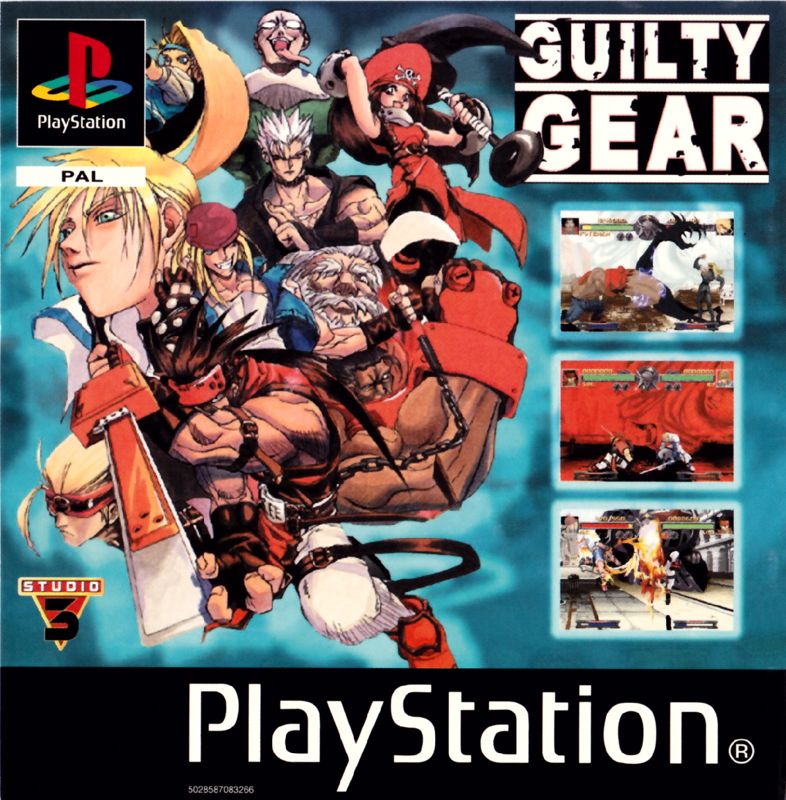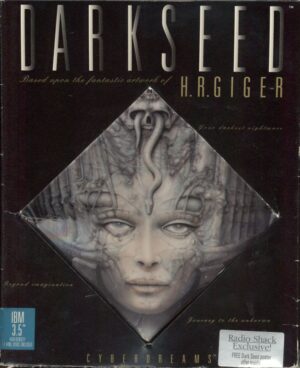Retro Replay Review
Gameplay
Guilty Gear delivers a fast-paced 2D fighting experience that emphasizes both technical precision and overwhelming spectacle. With ten distinct characters ranging from Holy Order knights to mad scientists and mafia enforcers, each fighter boasts unique move sets, combo chains, and Deathblow finishers that instantly dispatch an opponent. The learning curve is approachable for newcomers thanks to robust training options, yet deep enough to reward dedicated players who wish to master intricate charge timings and cancel windows.
(HEY YOU!! We hope you enjoy! We try not to run ads. So basically, this is a very expensive hobby running this site. Please consider joining us for updates, forums, and more. Network w/ us to make some cash or friends while retro gaming, and you can win some free retro games for posting. Okay, carry on 👍)
The game’s core combat loop revolves around chaining light, medium, and heavy attacks into devastating special moves. Players can gauge their offensive momentum with a tension gauge that enables powerful super attacks, while the Deathblow system introduces a high-risk, high-reward mechanic: land the cinematic finisher, and the match ends in a dramatic flourish. This layered approach to offense and defense cultivates dynamic matchups where mind games and frame-precise inputs create electrifying bouts.
Three main modes—Arcade, Versus, and Training—cater to a variety of playstyles. The Arcade mode offers a ladder of opponents culminating in a climactic showdown that reveals each character’s personal storyline. Versus mode lets you test your skills against friends locally, complete with customizable rounds and handicaps. Meanwhile, the Training mode provides visual hitboxes, frame data, and infinite health options, making it the perfect playground for learning advanced combos or refining defensive strategies.
To further enrich the gameplay, Guilty Gear incorporates stage hazards and interactive backgrounds that occasionally shake up the flow of combat. While these environmental details are largely cosmetic, they underscore the game’s commitment to spectacle without compromising balance. Overall, the blend of deep mechanics and gratifying visuals ensures hours of competitive engagement.
Graphics
Guilty Gear is renowned for its vibrant, hand‐drawn sprite work that brings each fighter to life with fluid animations and striking character designs. Every move is accentuated by dynamic visual effects—spark bursts during combos, energy trails on special attacks, and gore‐tinged flourishes on Deathblows—that convey a visceral sense of impact. The fluid frame rate keeps the action razor‐sharp, ensuring that no input goes unnoticed.
The backgrounds showcase a futuristic, 22nd‐century world infused with arcane technology. From the sleek hangars of the Armed Air Force to the gothic grandeur of Sacred Order cathedrals, each stage paints a unique atmosphere that complements its roster. Subtle parallax scrolling and reactive lighting effects give depth to the arenas without drawing attention away from the battle in the foreground.
Character portraits and menu interfaces maintain the same level of polish found in the in‐match visuals. Intuitive icons mark each character’s special moves, and the tension gauge is color‐coded to track super meter build‐up at a glance. Even in high‐octane matches, the UI remains clear and unobtrusive, allowing players to focus entirely on the fight.
While modern 3D fighters often lean on polygonal models and cinematic cameras, Guilty Gear’s commitment to 2D artistry stands out. The timeless anime‐inspired aesthetic not only distinguishes the title in an otherwise crowded genre but also ensures that it retains its visual appeal years after its initial release.
Story
Set in the 22nd century, Guilty Gear’s narrative explores the consequences of humanity’s experimentation with magic and genetic engineering. Scientists, delving into ancient sorcery, fused human and animal DNA to create “Gears,” artificial beings designed for total obedience. The experiment backfired when Justice, a Gear endowed with free will, spearheaded a rebellion that threatened to upend the world order.
The Sacred Order of Holy Knights eventually quelled Justice’s uprising and imprisoned him. Years later, Justice breaks free, prompting the Order to organize a high‐stakes tournament to identify the one contender capable of ending his reign once more. The tournament’s brutal rules—bloodshed permitted and a wish‐granting prize—set the stage for a cast of eclectic fighters, led by the enigmatic Sol Badguy and the dutiful knight Ky Kiske.
Each of the ten characters harbors a personal stake in the conflict, with backstories that intertwine themes of redemption, loyalty, and vengeance. As players progress through Arcade mode, they unlock cinematic vignettes revealing hidden motivations and alliances. These narrative snippets culminate in varied character endings, offering replay value for those eager to piece together the full tapestry of Guilty Gear’s lore.
Though the overarching plot serves mainly as a backdrop for intense matchups, the game’s well‐crafted cutscenes and evocative dialogue imbue each fight with emotional weight. Whether it’s Sol Badguy’s battle‐scarred cynicism or Ky Kiske’s unwavering honor, every character’s journey feels both distinct and essential to the world’s unfolding drama.
Overall Experience
Guilty Gear stands out as a hallmark of 2D fighting excellence, offering a harmonious blend of technical depth and visual flair. Its robust character roster, each with unique mechanics and story paths, guarantees that no two playthroughs feel the same. The presence of multiple game modes ensures that both solo players and competitive enthusiasts find ample content to enjoy.
Sound design further elevates the experience. A rock‐infused soundtrack pulses beneath the fray, perfectly matching the game’s high‐octane pacing. Voice samples—ranging from battle cries to dramatic Deathblow announcements—add gratifying audio cues that reinforce the impact of each blow. Combined with crisp control responsiveness, the result is a fighter that feels tight in the hands and exhilarating on screen.
While newcomers may be initially intimidated by advanced mechanics like tension management and instant deathfinishes, the comprehensive Training mode and well‐documented move lists ease the learning curve. For veterans, the competitive scene—whether local or online—offers a proving ground to showcase perfected combos and tactical prowess.
In sum, Guilty Gear is an engaging and challenging fighting game that excels in style, substance, and replayability. Its colorful cast, deep combat system, and compelling narrative backdrop make it a must‐have for fans of the genre and anyone seeking a richly crafted 2D fighter experience.
 Retro Replay Retro Replay gaming reviews, news, emulation, geek stuff and more!
Retro Replay Retro Replay gaming reviews, news, emulation, geek stuff and more!









Reviews
There are no reviews yet.